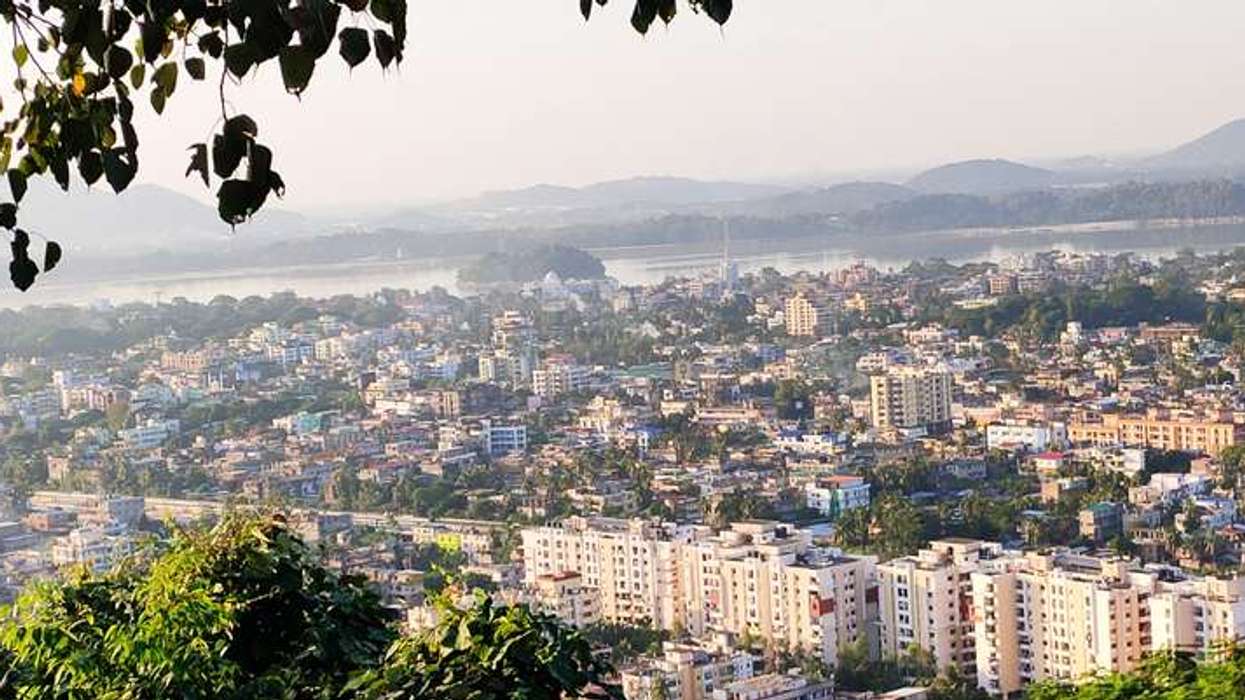Summary:
- BWH Hotels is staying the course on long-term growth, investing in AI and developer support.
- A new insurance program has saved some BWH hoteliers $50,000 to $60,000 annually.
- It aims to reach 5,150 hotels in five years, with 300 deals signed last year and 200-plus in the pipeline.
BWH HOTELS IS maintaining its long-term growth strategy despite market uncertainties, with President and CEO Larry Cuculic citing momentum across core markets. The company is investing in AI, supporting developers and focusing on long-term goals.
It has also launched support programs to ease pressure from rising costs, Cuculic and Brad LeBlanc, BWH’s senior vice president and chief development officer, said during an interview at AAHOA’s 2025 Convention and Trade Show. BWH generated $8 billion in revenue in 2023 and operates more than 4,500 hotels in 100 countries and territories, according to its website. Its loyalty program has 53 million members, and Cuculic is optimistic.
“We’re a resilient industry and at BWH Hotels, we’re an optimistic company. We look at challenges as opportunities, and we've been meeting as a team,” Cuculic said. “When a challenge presents itself, I think you have to look at how you're going to react, and if the strategies you put in place are still the strategies you are going to execute, and for us, they are. We see nothing to lead us to change course of our long term strategies, and that includes our investments in technology, marketing and sales.”
LeBlanc said developers should look at the long-term trajectory of the industry. He cited previous challenges, from high oil prices in the 1970s to the 9/11 attacks and COVID.
“We've been through a lot. We've been through a lot of turbulence and the industry ends up on the other side better than it was,” he said. “Look at a long trend, and the trend doesn't change. It's just straight up. People want to travel. It's demand for lodging, and that's what we do,
Still, Cuculic said they are “being thoughtful, watching carefully.” At the same time, the company continues to provide support for its owners.
“When headwinds appear, you reassess—but nothing so far suggests a need to shift course,” he said. “We’re focused on the long term: investing in AI, technology, marketing and sales, while integrating those tools across development, revenue management and operations to stay efficient and effective.”
Following a vision
Part of BWH’s planning for the future was to set a target of reaching 5,150 hotels globally in five years. Cuculic said the goal is achievable if you remember that BWH is a global company. It signed 300 deals last year and has more than 200 hotels in the pipeline.
“You don't just create that kind of a vision,” he said. “You have to drive revenue. You have to drive brand contribution. You have to have a strong loyalty program. That's how you get there.”
In June, BWH reported that it added nearly 100 new hotels globally in the first half of 2025. Most were in Latin America, the Middle East and Asia Pacific, and in areas following traveler interests and trends like cultural discovery, wellness, and outdoor adventure.
"The first half of 2025 has been nothing short of transformative for BWH Hotels. We've not just added hotels; we've strategically expanded our footprint, igniting our growth trajectory worldwide. This remarkable achievement is a testament to the unwavering dedication of our partners and hoteliers, who share our vision for unparalleled hospitality,” Cuculic said in a statement.
Cuculic also said the company is seeing growth in markets including North America, India, the Middle East, South America, Europe and Scandinavia. Cuculic said India remains a core opportunity.
“I was just in India. Everybody there is tremendously positive,” he said.
That positivism is driven by the policies of India Prime Minister Narendra Modi, Cuculic said.
“He's investing in the infrastructure, highways and airports, which allows people to travel. It encourages travel,” he said. “As you're encouraging travel, based upon that growth of the infrastructure, hotels will follow. So, everyone is very bullish.”
In January, BWH Hotels announced plans to expand WorldHotels into India, Bangladesh, and Sri Lanka. The company, which acquired WorldHotels in 2019, is now present in South Asia through
Sorrel Hospitality, its New Delhi–based master franchisee. Indian media reported that Sorrel will extend operations into Bangladesh and Sri Lanka.
Brand strategy
BWH segmented its brand portfolio to match developer needs across different regions and cycles. Its brands cover extended stay with @Home, Executive Residency and SureStay Studio; boutique and upscale: Aiden and Sadie; economy: SureStay; and soft branding: WorldHotels.
LeBlanc also said clarity in brand positioning is critical for development traction.
“You have to have a brand that meets developers where they are in their development appetite,” he said. “I would say that BWH is an organization that, over the last five to 10 years, has done a really good job putting its swim lanes in place as it built a brand family.”
During BWH’s owners’ conference last year, LeBlanc said extended‑stay brands ruled the pipeline. That hasn’t changed, he says now, with strong interest by the company’s franchisees.
“When the capital markets improve, and they will, extended stay is going to be on the front side of that line,” he said.
The company is focusing on extended stay in sectors such as healthcare, workforce housing and energy. Cuculic said the healthcare industry has a growing need for hotels to house traveling medical professionals.
“As we have an aging population, health care needs are expanding, and extended stay near health facilities are huge opportunity,” Cuculic said. “That's where people need us, and I'm using that term need us because it’s almost humanitarian to have a long term, extended stay, term hotel near those kinds of facilities.”
LeBlanc said other industries with itinerate work forces support extended stay.
“I love the oil and gas business,” he said. “I absolutely love the world of energy, and as energy plugs into what I think it will in the next four or seven years, extended stay will be again at the forefront of that development.”
The company is also expanding into outdoor lodging. Zion Wildflower Resort in Zion National Park, Utah, its first glamping project, launched with strong presale performance. Leblanc said Tony Nelson, Wildflower’s managing partner, was pleased with the presale season.
“He, by all means, is smiling ear to ear,” he said. “When we plugged him into this $9 billion reservation system that we have, he doesn't need much of that to be a big success. He was already a minimum of 50 percent occupancy.”
A second property, Pico Bonito Lodge, has been signed in Honduras.
“It’s upscale, it's luxury. They're actually renovating to even make it more upscale,” LeBlanc said. “It's going to be a neat opportunity for us to walk into what I call outdoor hospitality. I'm a believer that outdoor hospitality is going to be a big piece of our business in the future.”
‘Tariff impact limited so far’
Both executives said the company is monitoring the impact of tariffs and material costs on hotel development. So far, they do not see any major disruption.
“It's those projects that are entering the construction mode that are having to step back and go, ‘All right, what's my lumber look like? What's my sheetrock look like, what's my metal look like, what's my wood look like? And so, that's left to be seen.”
Cuculic said BWH continues to take a “cautiously optimistic” view.





